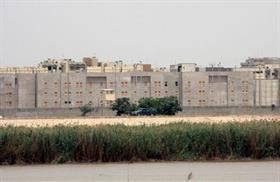After decades of war, it is quite natural for a country to plunge into several crises. Iraq has recently come up with an economic success, though plenty of problems are there that should be given close watch. The housing sector of the country should be revamped immediately in order to accommodate the people within the country with safety. Plenty of people are there, who lost their houses during the war tenures and still, they are searching for a roof on their top.
Statistics says that only 5 percent of the 2.5 million homes have been completed and plenty of projects are needed to be concluded by the year of 2016. On this Monday, the ministry of Housing and Construction revealed this data.
Experts expect the private sector to account for up to four-fifths of new builds in Iraq and the bulk of this investment will come abroad. However, foreign investment is concern of the nation. They are deterred by stifling bureaucracy and government inexperience in managing projects, while the worsening security situation is also a worry.
On top of this, the potential home owners struggle to get home loans from the state run finance departments or from Banks as such institutions are chronically underfunded with respect to their demand. By the end of 2016, Iraq needs to build 2.5 million new housing units, Mohammed al-Daraji, Iraq Minister of Construction and Housing told in a conference in Dubai.
But he estimated that only 130,000 of those homes would actually get built: 30,000 by the government and a further 100,000 by the private sector. "That's why I say it's a crisis," said Daraji. "Unless there's direct investment from foreign investors there won't be a solution. We've had a problem for the last 40 years. I'm not going to solve it in 2-3 years."
According to a report from IMF (International Monetary Fund), foreign direct investment was about 1 percent of gross domestic product in 2012. Daraji further stated, “Unless we attract foreign companies we don't know when this crisis will end.”
He added, "Some provinces haven't spent more than 25 percent of their budget because of a lack of contractors. The number of contractors is limited and the amount of work is more than they can take. It's a golden opportunity to enter Iraq."
Yet few foreign firms have been willing to build in Iraq, reluctance more down to local bureaucracy than increasing sectarian violence, according to Amar Shubar, a partner at Dubai-based consultancy Management Partners.
In the month of August, according to the estimation of United Nations, around 800 Iraqis have been killed. The bloodshed, 18 months after U.S. troops withdrew, has stirred concerns about a return to the sectarian slaughter of 2006-7, when the monthly death toll sometimes topped 3,000.
Mr. Shubar stated, "The biggest concern for international companies wanting to enter Iraq is the bureaucratic, administrative and contractual hurdles to work with the government," noting that, "The Iraqi government lacks the skills and experience to properly manage large and complex projects to an international standard."
Political infighting, with increasingly sectarian undertones, plagues the government, according to the IMF report. It also stated, "Poor governance, an inefficient judiciary system, inconsistent regulations, and insufficient security keep Iraq at the bottom of global rankings for doing business.”
Mr. Shubar unleashed the fact that construction in Iraq is the one tenth of the targeted rate, with foreign developers usually uninterested in building low-margin, low-cost housing. He also added, "The biggest need is in the lower-mid and low income segment."
Shortage in Funding
State-run Real Estate Bank provides home financing, but its annual budget is only 50 billion dinars ($43 million), "which covers nothing" said general manager Hussein Tohme. The government raised the bank's budget to 100 billion dinars for 2012 and 2013, but the extra funding never materialized, he said.
Tohme remarked that the fund should be around 500 billion dinars - 100 billion and 200 billion will not do anything. More funding would allow the bank to raise its loan limit to $60,000 from $25,000. He added that with the current funds, only 1000 houses can be built.
Aside from housing, Iraq's infrastructure is also in dire shape. Daraji estimates the country needs to build 500 new bridges, which would raise its total to 1,700, while it also requires 7,000 kilometers of new roads. "The previous regime spent all Iraq's resources on the military. That's why there's a lack of infrastructure," said Daraji. "We can't use all the available land because there's no infrastructure. We need to spend more money on sewage and water. We have problems with maintenance."
In this year, Iraq will spend 10 billion USD on infrastructure projects this year. The country is aiming to raise its fund by 15 billion USD per annum from the year of 2016.
|

